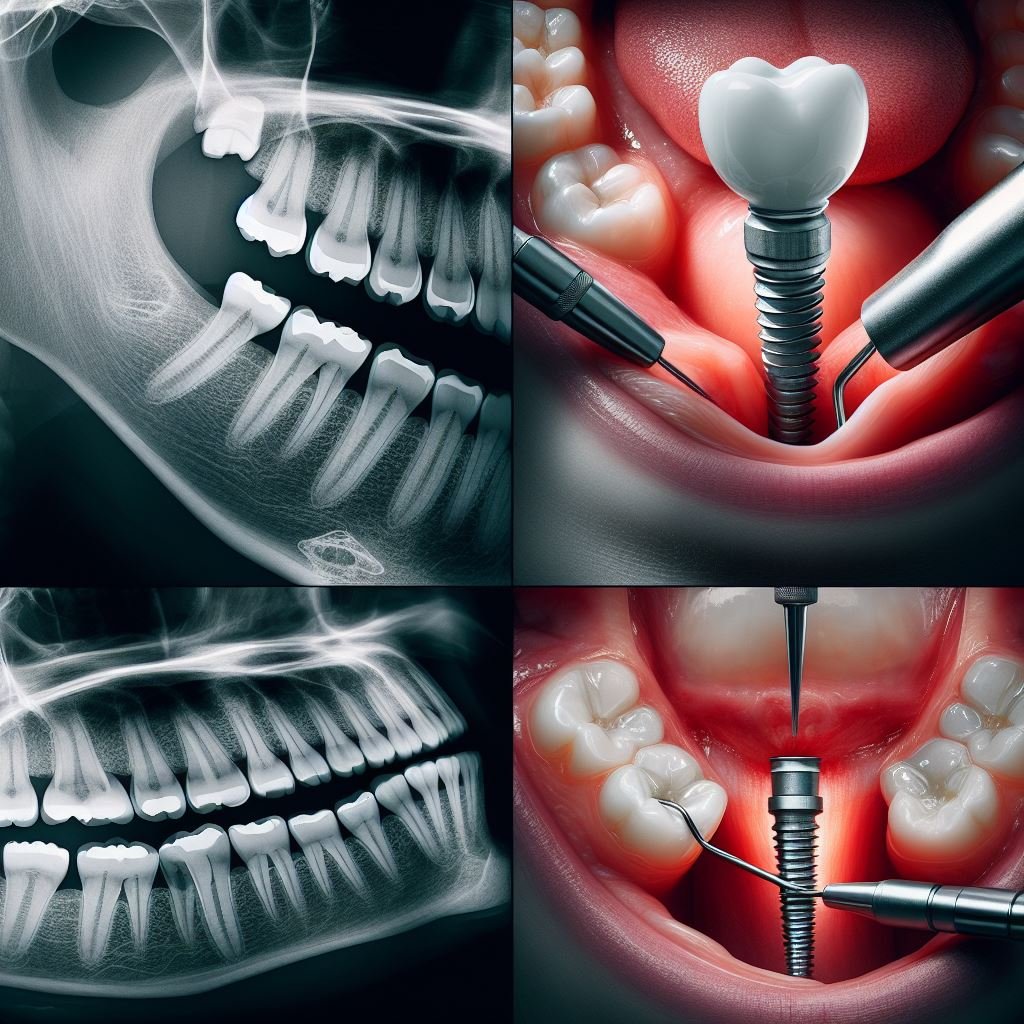
Table of Contents
ToggleExploring the Diverse World of Tooth Implants: A Comprehensive Guide
Introduction
In the realm of dental care, tooth implants have revolutionized the way we address tooth loss, providing patients with a natural-looking and functional solution. Dental implants come in various types, each designed to cater to specific needs and circumstances. In this article, we will delve into the different types of tooth implants, shedding light on their unique characteristics and benefits.
1. Endosteal Implants: The Traditional Choice
Endosteal implants are the most common and traditional type of dental implant. These implants are surgically placed directly into the jawbone, providing a sturdy foundation for artificial teeth. Typically made of titanium, endosteal implants fuse with the jawbone over time through a process called osseointegration. This integration ensures stability and durability, making endosteal implants a reliable choice for many patients.
These implants are versatile and can support various dental prostheses, such as crowns, bridges, or dentures, depending on the patient’s needs. The success rate of endosteal implants is high, making them a preferred option for those seeking a long-term solution for tooth loss.
Pros of Endosteal Implants:
- High success rate.
- Long-lasting and durable.
- Versatile, supporting various dental prostheses.
Cons of Endosteal Implants:
- Requires a surgical procedure.
- Healing time can be lengthy.
- May not be suitable for individuals with insufficient jawbone density.
2. Subperiosteal Implants: An Alternative for Limited Jawbone
Subperiosteal implants offer a viable solution for individuals with insufficient jawbone density or those unwilling to undergo bone augmentation procedures. Unlike endosteal implants, subperiosteal implants are placed on top of the jawbone but beneath the gum tissue.
A metal framework is positioned onto the jawbone, and as the gums heal, the frame becomes fixed in place. Posts attached to the frame protrude through the gums, allowing for the attachment of artificial teeth. Subperiosteal implants are suitable for patients who may not be candidates for traditional implants due to bone loss or other factors.
Pros of Subperiosteal Implants:
- Suitable for individuals with limited jawbone density.
- No need for bone augmentation.
- Offers an alternative for those who cannot undergo traditional implant procedures.
Cons of Subperiosteal Implants:
- Requires a metal framework placement surgery.
- Possible discomfort during the healing process.
- May not be as stable as endosteal implants.
3. Zygomatic Implants: A Solution for Severe Bone Loss
Zygomatic implants are designed for individuals with significant bone loss in the upper jaw. In cases where the natural bone is insufficient to support traditional implants or bone grafting is not an option, zygomatic implants provide an alternative.
These implants are anchored into the zygomatic bone (cheekbone) rather than the maxillary bone. Zygomatic implants offer stability and support for dental prostheses, even in cases where standard implants might fail. This innovative solution has proven to be effective for patients facing challenges with traditional implant placement.
Pros of Zygomatic Implants:
- Suitable for severe bone loss cases.
- Avoids the need for bone grafting.
- Provides stability in challenging situations.
Cons of Zygomatic Implants:
- Requires specialized surgical expertise.
- Higher cost compared to traditional implants.
- Limited availability of experienced practitioners.
4. All-on-4 Implants: Streamlining the Process
All-on-4 implants are a contemporary approach designed to provide a full set of teeth using only four strategically placed implants. This technique is particularly beneficial for patients who have lost most or all of their teeth.
Pros of All-on-4 Implants:
- Efficient and streamlined process.
- Faster recovery compared to traditional full-mouth implants.
- Fewer implants reduce overall cost.
Cons of All-on-4 Implants:
- Limited to specific cases with the right conditions.
- Potential complications with fewer implants.
- Not suitable for all patients.
Frequently Asked Questions (FAQs)
Q1: How long do dental implants last?
A1: Dental implants, if properly cared for, can last a lifetime. The success and longevity depend on factors such as oral hygiene, overall health, and lifestyle.
Q2: Are dental implants painful?
A2: The placement of dental implants is done under anesthesia, ensuring a pain-free procedure. Some discomfort during the healing process is normal, but it is manageable with prescribed medications.
Q3: Can anyone get dental implants?
A3: While most individuals can get dental implants, a thorough evaluation by a dental professional is necessary to determine eligibility. Factors such as overall health and jawbone density play a crucial role.
In conclusion, the world of tooth implants offers a variety of options to cater to different dental needs. Understanding the pros and cons of each type, along with considering individual circumstances, is crucial in making an informed decision for a long-lasting and aesthetically pleasing solution to tooth loss.
